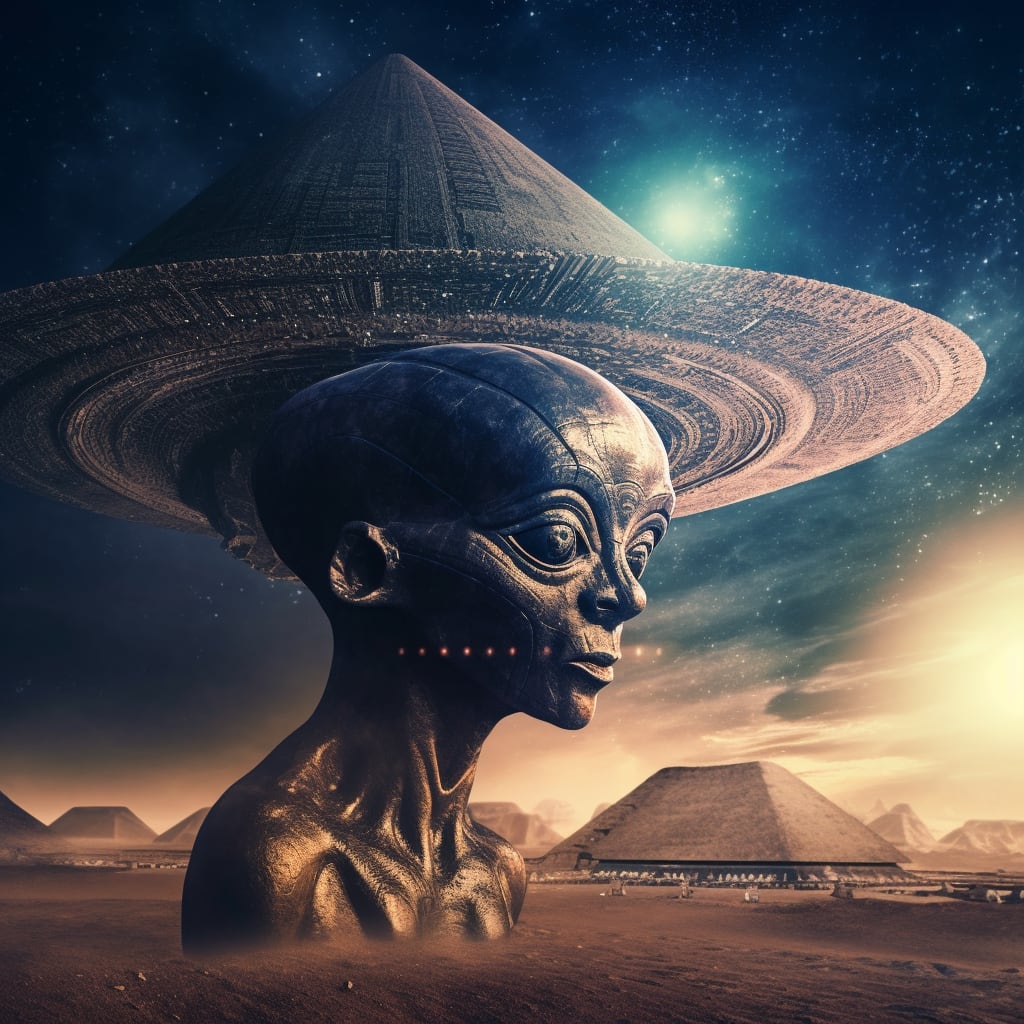Unveiling the Enigma: Examining the Origins of Humanity - Were Humans Created by the Anunnaki 450,000 Years Ago?
Delving into the Ancient Alien Hypothesis and Its Impact on Our Understanding of Human Existence

In our relentless pursuit of comprehending the world we inhabit, we have long relied on the interpretations of esteemed writers, scholars, and archaeologists to gain insight into the significant events that have shaped our existence. These historical accounts, regarded as factual, have shed light on pivotal moments like world wars and the actions of influential individuals that have altered the course of history. However, the advent of the internet, social media, and the growing trend of rewriting historical events to suit specific causes or arguments present new challenges. Amidst the constant stream of information, stories, and knowledge available at our fingertips, it is crucial that we approach the study of our past with caution, ensuring we learn from it rather than misinterpret or forget the valuable lessons as we forge ahead into the future.
In this article, we embark on a journey to explore a captivating theory that challenges our conventional understanding of human existence. Could it be possible that humans were not originally from Earth but were instead created by an extraterrestrial civilization thousands of years ago? This thought-provoking possibility compels us to question our origins, reassess our perception of history, and contemplate how it influences our worldview. Join us as we delve into the captivating concept that we might be the true aliens.
Before we delve into such a monumental claim, it is crucial to examine the origins and reception of this theory before it captivated our screens and scientific journals. In 1966, the renowned scientific communicator and astrophysicist Carl Sagan, along with his esteemed colleague Joseph Chokovsky, dared to speculate on this subject. In their co-authored book, "Intelligent Life in the Universe," they explored the potential for direct contact with extraterrestrial civilizations and the plausibility of ancient legends being enhanced by transparent displays of purpose or astronomical knowledge beyond the capacities of primitive societies.
Sagan's exploration included the intriguing legend of Oannes, a mythical half-human, half-fish creature believed to have emerged from the remote regions of the Persian Gulf. According to ancient Sumerian civilization, which thrived around 4000 BCE, Oannes imparted art, knowledge, and wisdom upon humanity. Sagan urged a critical reassessment of such stories and ancient civilizations, opening the door to alternative interpretations that proposed the presence of alien-like entities like the Apkallu, who purportedly observed and guided the progress of the Sumerians.
Another notable figure in the realm of the ancient alien hypothesis is Zakaria Sitchin. Born in Baku, Sitchin devoted his life to studying ancient civilizations, particularly the Sumerians. His work, encompassing seven books collectively known as "The Earth Chronicles," presents a unique perspective on human genealogy and the origins of our planet. Sitchin's controversial interpretation revolves around the Anunnaki, a god-like alien race originating from the mythical planet Nibiru. According to Sitchin, the Anunnaki visited Earth over 450,000 years ago in search of gold and other resources. Sitchin argues that human beings, Homo sapiens, were genetically engineered to serve as laborers for the Anunnaki's mining operations.
While Sagan, Sitchin, and others have put forth intriguing theories, their ideas have faced skepticism and criticism from the scientific and historical communities. NASA senior scientist David Morrison and biblical scholar Dr. Michael S. Heiser have both refuted the existence of Nibiru and the connection between the Anunnaki and ancient texts. Similarly, Graham Hancock, a well-known proponent of alternative historical interpretations, has garnered both fame and criticism for his speculations on lost civilizations and their influence on human development.
As our technological advancements enable us to discover and study ancient ruins, tablets, and other historical artifacts with greater precision, our understanding of the past continues to evolve.
About the Creator
Enjoyed the story? Support the Creator.
Subscribe for free to receive all their stories in your feed. You could also pledge your support or give them a one-off tip, letting them know you appreciate their work.





Comments
There are no comments for this story
Be the first to respond and start the conversation.